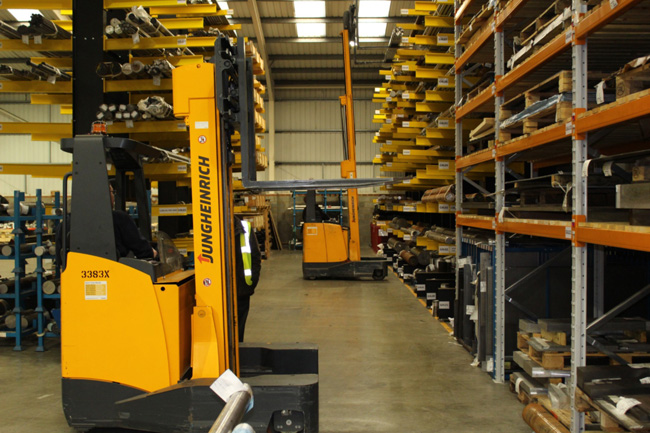The purpose of daily checks is to ensure that the fork lift is in a safe and sound condition prior to being used, and only by carrying out these checks is the operator able to make certain that the machine is safe for use.
The checks may also highlight minor faults which if repaired early, will prevent them from developing into costly major repairs.
All faults found during the checks must be recorded and immediately reported to the supervisor and under no circumstances should any machine be used if found to be in an unsafe condition.
Likewise should any fault develop during the shift, the operator should park the truck as safely as possible, remove the key and report the fault to supervisor.

A specified daily checklist should be provided and must be kept for at least six months. Stackers can provide daily inspection booklets at minimal cost and we can tailor these to suit your requirements, ie, shift system, gas diesel or battery powered trucks, etc. Please contact us if you would like a quotation for some daily inspection booklets.
An example of the things that need to be checked:
• Electrolyte level: The correct protective clothing must be worn when topping up or checking electrolyte levels.
• Fuel, Oil and Water levels (if applicable): Fuel, Oil and Water levels are correct – top up where necessary.
• Visual check of forks, carriage, mast: Check for distortion, wear, obvious damage.
• Hydraulic hoses: Check for damage, cracks or signs of leakage.
• Lifting Chains: Check load chain for missing pins, broken links, rust, grit or swarf, etc.
• Wheels/Tyres: Correct pressure, worn, damaged or split tyres, wheel nuts.
• Visual all round check:Check guards, covers, overhead guards, seat, seat adjuster. Check for any missing covers, loose bolts, nuts, etc.
It should be noted that checks carried out so far are carried out before mounting and starting the machine. Having carried out these checks the operator should mount the truck and commence carrying out the rest of the daily checks.
• Safety devices, including audible warning and horn: Check for correct operation.
• Hydraulics: Hydraulic controls – hoist, tilt, reach are all working correctly.
• Foot brake: Check foot brake in both forward and reverse directions. Check for smooth operation on the forwards and reverse action.
• Check parking/emergency brake: Check parking brake holds the truck when parked and stops the truck in an emergency. Check that the emergency brake is in the correct working order.
• Steering: Check for excessive play, tightness, looseness in steering wheel linkage.
• Check floor for leaks: Check floor for leaks from any hydraulic hoses, engine compartment, etc.
All checks should be carried out in accordance with the Manufacturer’s instructions and recommended workplace procedures.
Under section 2, sub-section 2(a) of the Health and Safety at Work Act, the employer does have a duty to provide and maintain safe plant and systems of work, and the employee has a duty of reasonable care of himself and others under section 7 of the Act, each employee also has a duty to co-operate with their employer under this section
Fill in our online form to request more information or ask us a question
Online enquiry form